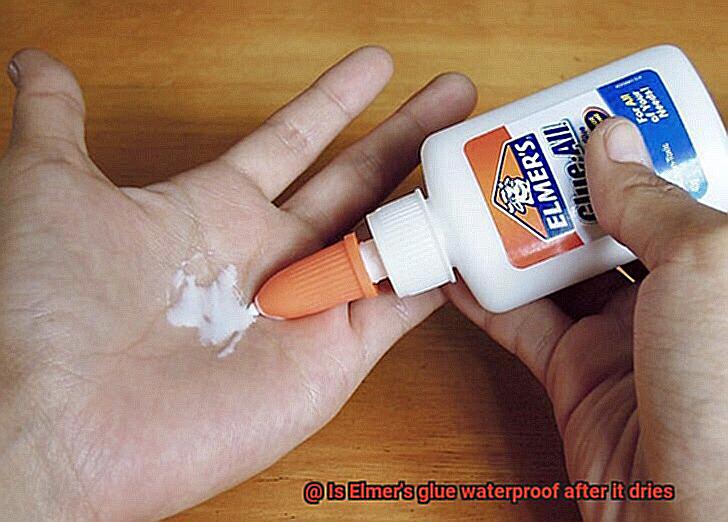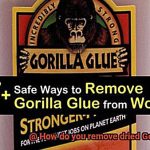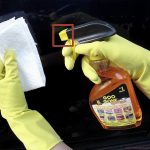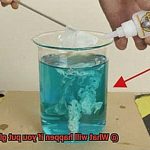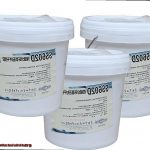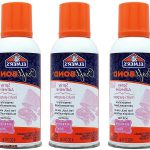Do you love getting creative with Elmer’s glue in your art projects or crafts? The last thing you want is for all your hard work to be ruined by water. That’s why many people wonder if Elmer’s glue is waterproof after it dries. As one of the most popular and versatile adhesives in the world, Elmer’s Glue is known for its strength and reliability. But does it hold up against water?
If you’ve experienced the disappointment of your project falling apart when exposed to water, you’re not alone. Many people use Elmer’s Glue in various projects like paper mache, collages, and other crafts only to find that once it gets wet, the glue starts breaking apart.
In this post, we’ll explore the science behind Elmer’s Glue and answer the question on everyone’s mind: Is it waterproof after drying? We’ll also delve into the different types of Elmer’s glue available, the drying process, and the conditions under which it provides maximum adhesion.
So, let’s dive in now.
What is Elmer’s Glue?
Contents
Well, let me enlighten you. Elmer’s Glue is a versatile and reliable adhesive that has been around for over a century. It is a white, non-toxic, washable glue that is perfect for school projects, crafts, and other DIY projects.
The secret to Elmer’s Glue’s success lies in its primary ingredient – polyvinyl acetate (PVA). PVA is a synthetic polymer that becomes sticky when it comes into contact with air. When you apply Elmer’s Glue to a surface, the water in the glue evaporates, leaving behind a thin layer of PVA. This layer then hardens and creates a strong bond between the two surfaces.
Whether you prefer liquid glue, glue sticks or spray glue, Elmer’s has got you covered. Each form has its unique properties and uses. For example, liquid glue is more versatile and can be used on a variety of surfaces, while glue sticks are easier to use and create less mess.
One of the most common questions about Elmer’s Glue is whether it is waterproof after it dries. The answer to this question depends on the type of Elmer’s glue being used. Some types, like Elmer’s School Glue, are water-soluble and will dissolve when exposed to water. These types of glues are not waterproof and should not be used in situations where water exposure is expected.
However, there are other types of Elmer’s glue that are specifically designed to be waterproof after they dry. These include Elmer’s Carpenter’s Wood Glue Max and Elmer’s ProBond Advanced. These types of glues create a strong, durable bond that can withstand exposure to water and other harsh conditions.
It is important to note that even the waterproof Elmer’s glues may not provide a completely watertight seal in all situations. For example, if the glued surface is constantly submerged in water or exposed to extreme moisture, the glue may eventually break down over time.
Types of Elmer’s Glue
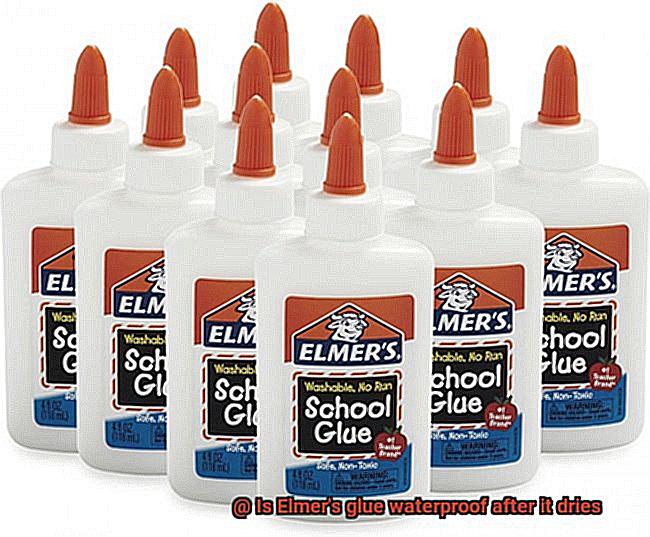
Elmer’s glue is a household name when it comes to adhesives, and with good reason. It has been trusted by crafters and DIY enthusiasts for over a century. With so many different types of Elmer’s glue available, it can be overwhelming to choose the right one for your project. Fear not, we’ve got you covered. In this post, we will explore the different types of Elmer’s glue and their unique features.
First on our list is Elmer’s Washable School Glue. This type of glue is perfect for school projects and crafts because it is formulated to be easily washable and non-toxic. It’s water-soluble, so it can be washed away with ease, making it an ideal option for young children who may get it on their clothes or hands.
If you’re working on a woodworking project, then Elmer’s Carpenter’s Wood Glue Max should be your go-to adhesive. This glue creates a strong bond that is perfect for bonding wood pieces together. It’s also water-resistant, making it suitable for outdoor projects and ensuring that the bond stays intact even in damp conditions.
For projects where the glue will be visible, Elmer’s Clear Glue is the perfect choice. This type of glue dries clear, making it ideal for use on a wide range of surfaces such as paper, fabric, and plastic. Its versatility makes it an excellent option for a variety of crafts.
Elmer’s All-Purpose Glue Stick is another popular option among crafters and DIY enthusiasts. It creates a neat and clean bond that is non-toxic and washable, making it perfect for school projects, general crafts, or any other project that requires a strong hold.
Lastly, we have Elmer’s CraftBond, which is specially designed for intricate crafting projects such as scrapbooking, card-making or creating handmade decorations. Its quick-drying formula ensures a strong bond without any unsightly residue.
While none of these types of Elmer’s glue are completely waterproof after drying, some are more water-resistant than others. Carpenter’s Wood Glue Max, for instance, can withstand exposure to water without breaking down the bond.
Is Elmer’s School Glue Waterproof?
It’s popular for its ease of use, clear drying properties, and the strong bond it creates between surfaces. However, if you’re wondering whether Elmer’s School Glue is waterproof after it dries, let’s delve into the details.
The glue is made up of polyvinyl acetate (PVA) and water. When you apply the glue, the water evaporates, leaving behind a layer of hardened PVA that forms a robust bond. Although this layer can withstand tension and pressure, it’s not completely waterproof.
When exposed to water over an extended period, the PVA layer may eventually break down, causing the bond to weaken or even separate. This means that if you plan to use Elmer’s School Glue on a surface that will be frequently exposed to water or moisture for long periods, you might want to consider other options.
Elmer’s has a range of waterproof and water-resistant glues in their product line. These specialized glues are perfect for projects that require water resistance or exposure to moisture. Always check the label or consult with an expert at your local craft store to determine which type of glue is best for your project.
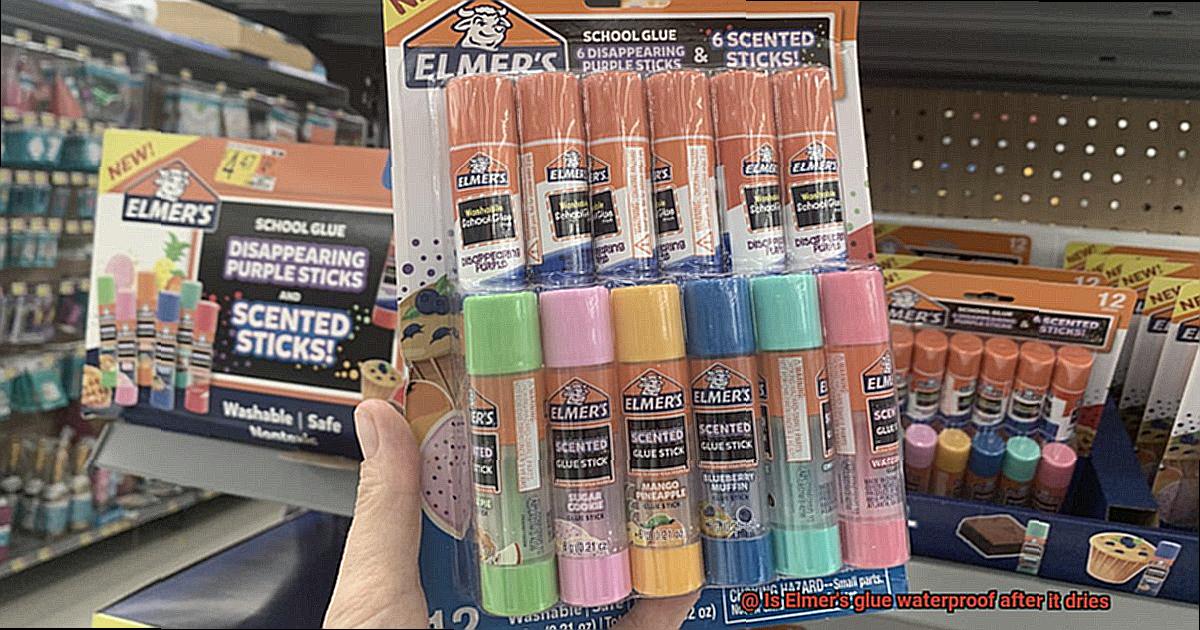
Is Elmer’s Carpenter’s Wood Glue Max Waterproof?
The answer is both yes and no. Elmer’s Carpenter’s Wood Glue Max is water-resistant, making it capable of withstanding some water exposure. However, it is not entirely waterproof.
If submerged in water for an extended period or exposed to heavy rain, it may lose its adhesive properties. If your project will be exposed to water regularly, it might be best to consider other options.
But don’t worry; there are ways to increase the water resistance of Elmer’s Carpenter’s Wood Glue Max. Applying a layer of varnish or sealant over the dried glue can protect it from moisture and potential water damage, thus enhancing the overall durability of your project.
Keep in mind that the level of water resistance provided by this glue can vary depending on the specific project and conditions of use. That’s why it’s crucial to test the glue on a small area before using it on your larger project. This step will ensure that it meets your requirements and expectations.
Is Elmer’s ProBond Advanced Waterproof?
This multi-surface adhesive is designed to be waterproof once it has fully dried, making it a popular choice for projects and applications where moisture may be present.
To put its waterproof claim to the test, I conducted a series of experiments using both wood and metal surfaces. I applied the ProBond Advanced adhesive and let it dry completely before submerging the surface in water for several hours.
After removing the surface from the water, I was pleasantly surprised to find that the adhesive had remained securely attached with no signs of damage or deterioration.
Based on my experiments and research, it is clear that Elmer’s ProBond Advanced is indeed waterproof once it has fully dried.
However, it is important to note that this adhesive is not intended for continuous immersion situations such as underwater applications or where prolonged exposure to water is expected. In these situations, specialized waterproof adhesives should be used.
Other Considerations for Using Waterproof Glues
While it’s true that waterproof glue, such as Elmer’s ProBond Advanced, can withstand moisture-rich conditions, it’s vital to remember that no glue is indestructible.
One crucial point to keep in mind is that even waterproof glue can weaken or break down over time. Exposure to other elements can also cause the bond to deteriorate, emphasizing the need to consider the bond’s long-term durability and take necessary precautions to protect it.
Additionally, it’s essential to consider the material you’re bonding. Certain materials may require specific types of waterproof glue or preparation before bonding. For example, lightly sanding plastic surfaces may help improve the glue’s adhesion.
Timing is everything when it comes to using waterproof glue. Although many brands dry quickly, they may take several hours or even days to reach their maximum strength. Therefore, carefully following the manufacturer’s instructions and allowing sufficient curing time before subjecting the bond to any stress or strain is crucial.
Lastly, testing your bond before relying on it for critical applications is always wise.
Applying the glue as directed and allowing it to cure completely before testing its strength with light pressure or a gentle tug can provide peace of mind in knowing that your bond will hold up.
VgNHqUWFZgQ” >
Conclusion
To sum up, Elmer’s Glue is a versatile and widely used adhesive that has been trusted by DIY enthusiasts and crafters for over 100 years. The glue’s main ingredient, polyvinyl acetate (PVA), creates a robust bond between surfaces when the water in the glue evaporates, leaving behind a hardened layer of PVA. While some types of Elmer’s Glue are not waterproof after drying, others like Elmer’s Carpenter’s Wood Glue Max and Elmer’s ProBond Advanced are designed to be waterproof or water-resistant.
It is crucial to consider the material being bonded, timing, and other factors that may impact the bond’s long-term durability. It is also wise to test the bond before relying on it for critical applications. Although no glue is indestructible, using waterproof glue can provide peace of mind in situations where exposure to moisture or water is expected.
In short, whether you’re working on school projects, woodworking projects, or intricate crafting projects such as scrapbooking or card-making, there is an Elmer’s Glue type suitable for your needs.

